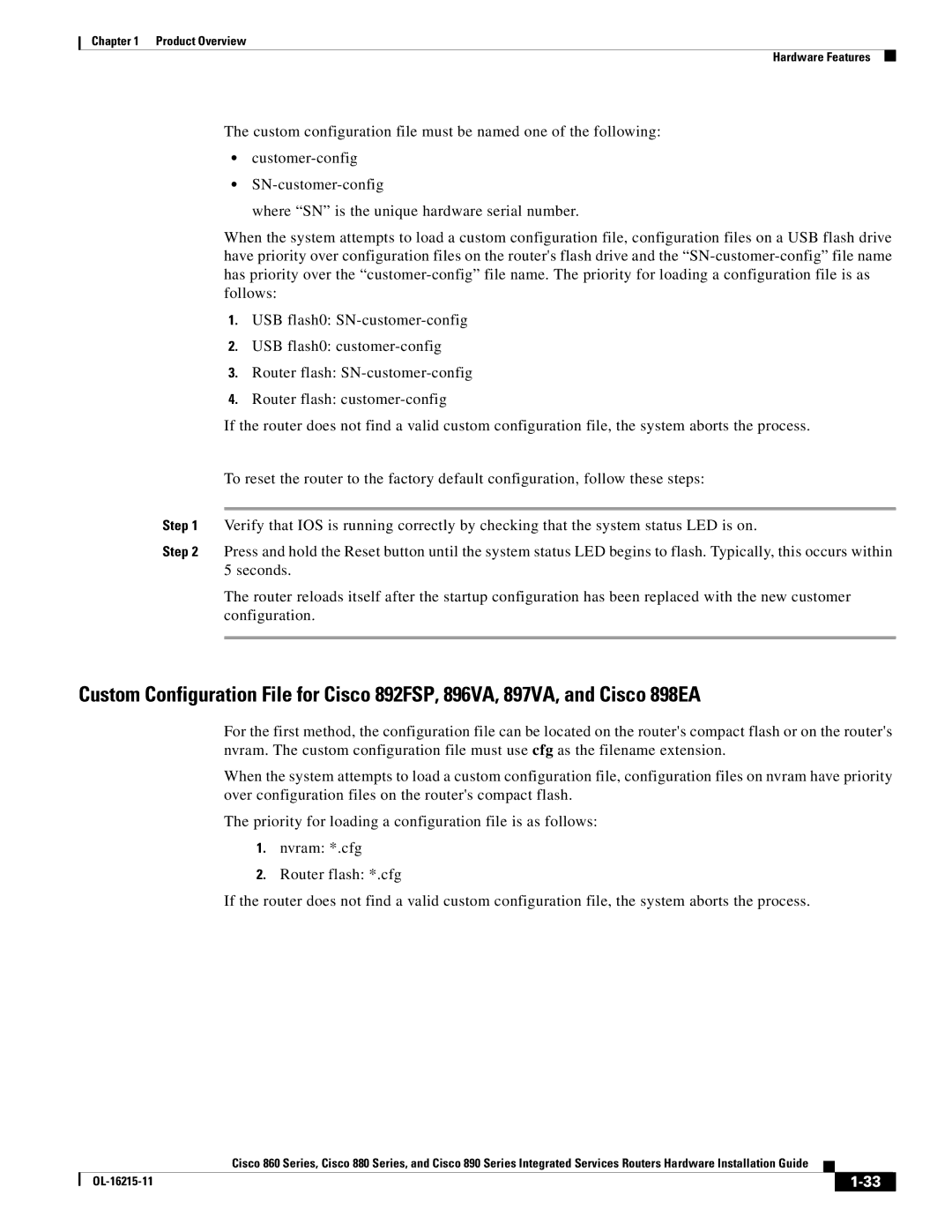
Chapter 1 Product Overview
Hardware Features
The custom configuration file must be named one of the following:
•
•
where “SN” is the unique hardware serial number.
When the system attempts to load a custom configuration file, configuration files on a USB flash drive have priority over configuration files on the router's flash drive and the
1.USB flash0:
2.USB flash0:
3.Router flash:
4.Router flash:
If the router does not find a valid custom configuration file, the system aborts the process.
To reset the router to the factory default configuration, follow these steps:
Step 1 Verify that IOS is running correctly by checking that the system status LED is on.
Step 2 Press and hold the Reset button until the system status LED begins to flash. Typically, this occurs within 5 seconds.
The router reloads itself after the startup configuration has been replaced with the new customer configuration.
Custom Configuration File for Cisco 892FSP, 896VA, 897VA, and Cisco 898EA
For the first method, the configuration file can be located on the router's compact flash or on the router's nvram. The custom configuration file must use cfg as the filename extension.
When the system attempts to load a custom configuration file, configuration files on nvram have priority over configuration files on the router's compact flash.
The priority for loading a configuration file is as follows:
1.nvram: *.cfg
2.Router flash: *.cfg
If the router does not find a valid custom configuration file, the system aborts the process.
|
| Cisco 860 Series, Cisco 880 Series, and Cisco 890 Series Integrated Services Routers Hardware Installation Guide |
|
| |
|
|
| |||
|
|
|
|
| |
|
|
|
| ||
